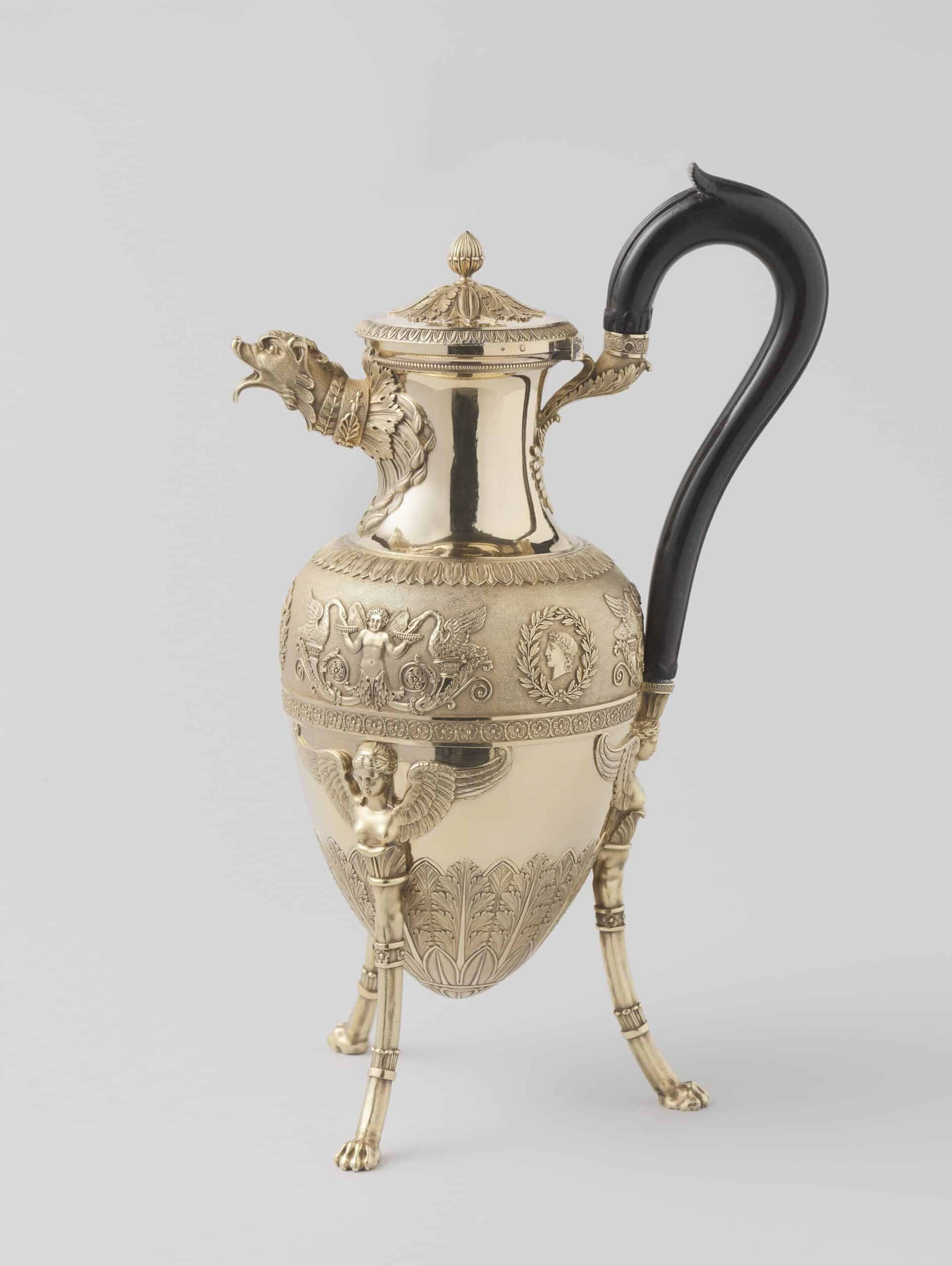Eighteen young writers from Flanders and the Netherlands have brought nineteenth-century artefacts from the Rijksmuseum to life. They wrote their stories in response to the question: what do you see when you look at these objects through the lens of impending doom? Eva Salman wrote a short story inspired by a coffee pot. ‘The little dragon hisses when water instead of blood gushes past its teeth.’
 Coffee pot, silver, gilding and ebony, Martin Guillaume Biennais, c. 1817
Coffee pot, silver, gilding and ebony, Martin Guillaume Biennais, c. 1817© Rijksmuseum Collection, Amsterdam
It rained earlier and the paving stones of Hobbemastraat are still wet. The Rolls Royce’s gold-trimmed tyres drag across the street when we drive away for the last time. My eyes meet Jane Mannheimer’s when I glance in the rear-view mirror. Beside her on the seat is a half-open cardboard box, its contents rattling shrilly along to the car’s vibrations. A small dragon with its wide-open mouth peers over the side, its spiked back with fanned feathers is arched, its black tail elegantly curved. Jane rests one hand on the spike and one around my backrest. It is 9 August 1939, and the AD reports it on page 5: the last Jewish banker doing business in Germany, Fritz Mannheimer, has gone bankrupt.
*
My windscreen wipers are swinging like a pendulum. It is 9 September 1939, Fritz has been dead a month and Hitler wants to buy his art. We keep moving. Outside Nice, the rain swells until it envelops us; it is beating its fists on the roof and on my heart. When the car in front of us suddenly slows and I have to slam on the brakes, I feel a small surge of shock. A painting, the box with the silver service and a few books hit the back of our seats. Jane curses and holds her belly with both hands. We continue at a crawl. When the rain eases, we stop by the side of the road.
With difficulty, Jane sits down on one of the folding chairs and kicks off her shoes. She groans and asks me to soothe her swollen feet. I rummage in the box on the back seat and pull out a soup terrine without a pedestal foot and the coffee pot. I gently lower her feet into the bowl and use the pot to pour over the liquid. The little dragon hisses when water instead of blood gushes past its teeth.
*
Several times a day I am overcome by a fatigue so deep that all I want to do is lie down and sink into the moss. I no longer care about either the distant or the near future; I feel them unfold towards death. The trees we whizz past are beginning to shed leaves. Autumn is upon us and we are still in transit. I have not seen Amsterdam for months and I am trying to hold on to the memories of a time when everything had its place. I picture them: the ebony cabinets with Fritz’s art collection, the hateful looks of the locals when I parked the Rolls Royce outside Villa Protski, the maple that leaned over the house to provide shade, the sound of children after their swimming lesson at Zuiderbad – I feel a hand on my leg and look up in surprise.
It is 9 October 1939, I think, Jane is close to her due date, and I suddenly realise that the dragon will never be used for its original purpose.












